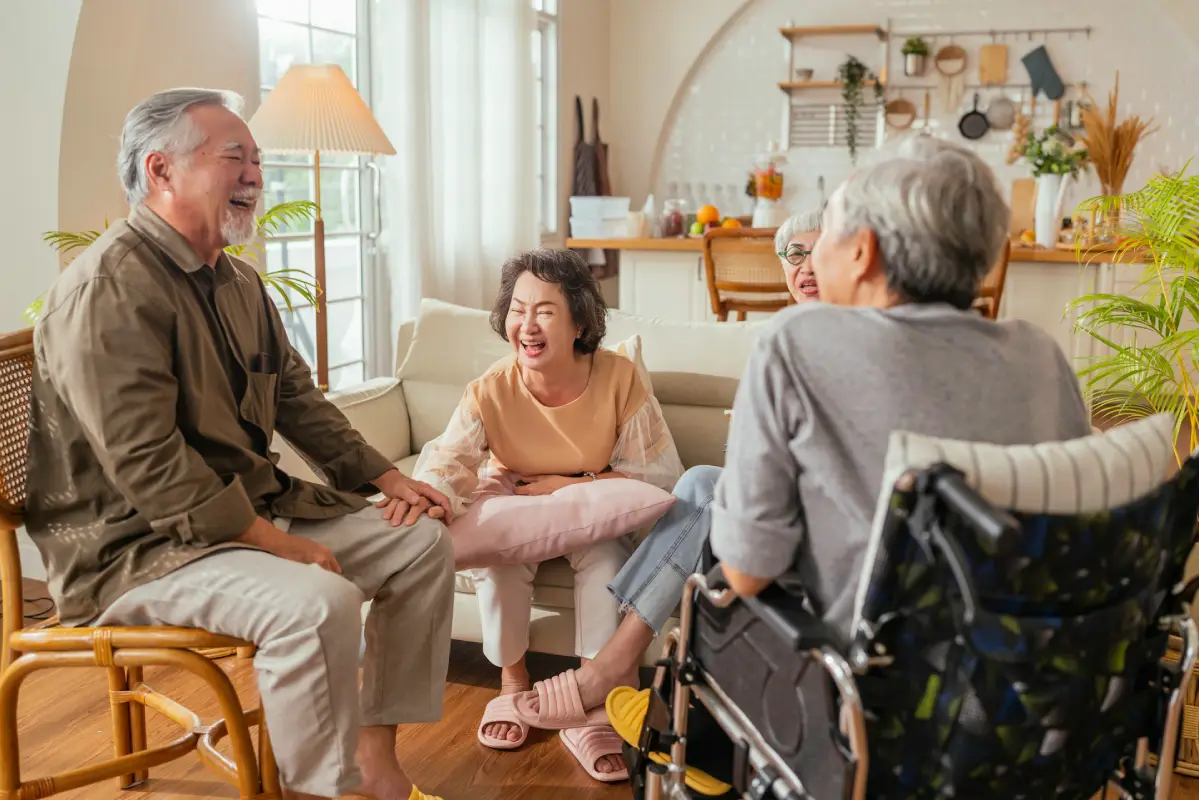Enhancing Quality of Life: The Role of Assisted Living Communities in Promoting Physical and Mental Wellness
As loved ones age, their physical and emotional well-being becomes a top priority for their families. Finding an environment that offers comprehensive support and enhances quality of life is essential. One solution that has gained significant recognition is assisted living.
These communities are dedicated to delivering holistic care, providing meaningful social opportunities, and offering programs that promote wellness, enabling seniors to thrive in their later years. By blending independence with the right level of support, assisted living environments empower seniors to maintain dignity while meeting their evolving needs.
The focus on wellness, safety, and social connection within these communities ensures residents are not only cared for but are part of a vibrant and engaging setting. Let’s explore how assisted living communities are shaping better lives for their residents through personalized services, social opportunities, and targeted health initiatives.
Contents
Personalized Care and Support
One of the cornerstone benefits of assisted living is the delivery of care tailored to each individual’s physical and emotional requirements. This personalized approach extends beyond medical assistance, encompassing support with daily activities such as bathing, dressing, grooming, and medication administration.
Each care plan is designed in collaboration with the resident and supportive family members, ensuring services are both respectful and empowering, allowing seniors to preserve the highest degree of independence possible.
Additionally, staff members are trained to recognize changes in health or behavior, meaning residents’ needs are met swiftly and compassionately. Scheduled wellness checks and ongoing communication between teams and families further contribute to this individualized level of support.
Social Engagement and Community Building
Social isolation can be particularly detrimental to seniors, often contributing to feelings of loneliness and depression. Assisted living communities expand opportunities for connection through a diverse selection of social programs. Daily activities, such as art workshops, exercise groups, and book clubs, encourage regular interaction, helping residents form valuable friendships within their peer group.
Special events are hosted throughout the year, enabling residents to come together and foster a genuine sense of community spirit. According to research, regular social engagement helps stimulate mental faculties and improves overall well-being. Scheduled outings, holiday parties, and resident-led clubs foster an environment of inclusivity and shared experience, ensuring every individual feels valued.
Physical Wellness Programs
Sustaining physical health is fundamental to a high quality of life for older adults. Assisted living facility are careful to provide exercise programs tailored to various ages and capabilities. These may include yoga for flexibility, walking clubs to enhance endurance, and gentle strength training to maintain muscle mass.
According to Healthline, walking in particular offers numerous benefits for older adults, including improved cardiovascular health, a better mood, and increased mobility, making it an ideal low-impact activity in these settings. Wellness coordinators carefully design these programs, ensuring everyone can participate safely and enjoyably.
Meals play an equally important role in physical health. Balanced, chef-prepared menus offer residents nutritious options that accommodate special diets and personal preferences.
Mental Health Support
Emotional and cognitive well-being form the foundation of overall health and wellness. Recognizing this, assisted living communities prioritize mental health through multiple avenues: on-site counseling services, group therapy sessions, and activities designed to alleviate stress.
Programs such as music therapy, guided meditation, and art therapy provide fulfilling outlets for self-expression and relaxation, enabling residents to navigate life’s transitions with greater resilience. Community staff are also trained to support those experiencing memory issues or early-stage dementia, creating safe and engaging environments tailored to their unique needs.
Safety and Security
Safety is paramount in assisted living communities. Facilities are equipped with features designed to prevent accidents and ensure swift response during emergencies, such as grab bars, non-slip flooring, emergency pull cords, and 24/7 monitoring systems. These purposeful designs reduce the risk of falls and instill confidence in residents as they navigate the community safely.
Moreover, professional staff are available around the clock to respond to medical emergencies or other concerns, giving both residents and their loved ones peace of mind.
Access to Healthcare Services
Access to regular healthcare is instrumental in preventing illness and managing chronic conditions in older adults. Assisted living communities often collaborate with healthcare providers to schedule routine medical assessments, manage medications, and arrange therapy services. On-site or on-call nursing professionals help address minor health concerns promptly, reducing the need for hospital visits.
Having healthcare support integrated into daily life means that residents not only receive preventive care but also benefit from rapid intervention when health issues arise. Coordination with outside healthcare specialists ensures that ongoing treatments are managed seamlessly, further contributing to residents’ sense of security and overall well-being.
Conclusion
Assisted living communities play a critical role in enhancing both the physical and mental health of older adults. By combining individualized care, stimulating social environments, comprehensive wellness programs, and robust safety measures, these communities provide much more than shelter—they foster flourishing lives. Ultimately, selecting the right assisted living community can transform the aging experience, providing residents with fulfillment and delivering peace of mind to their families.

